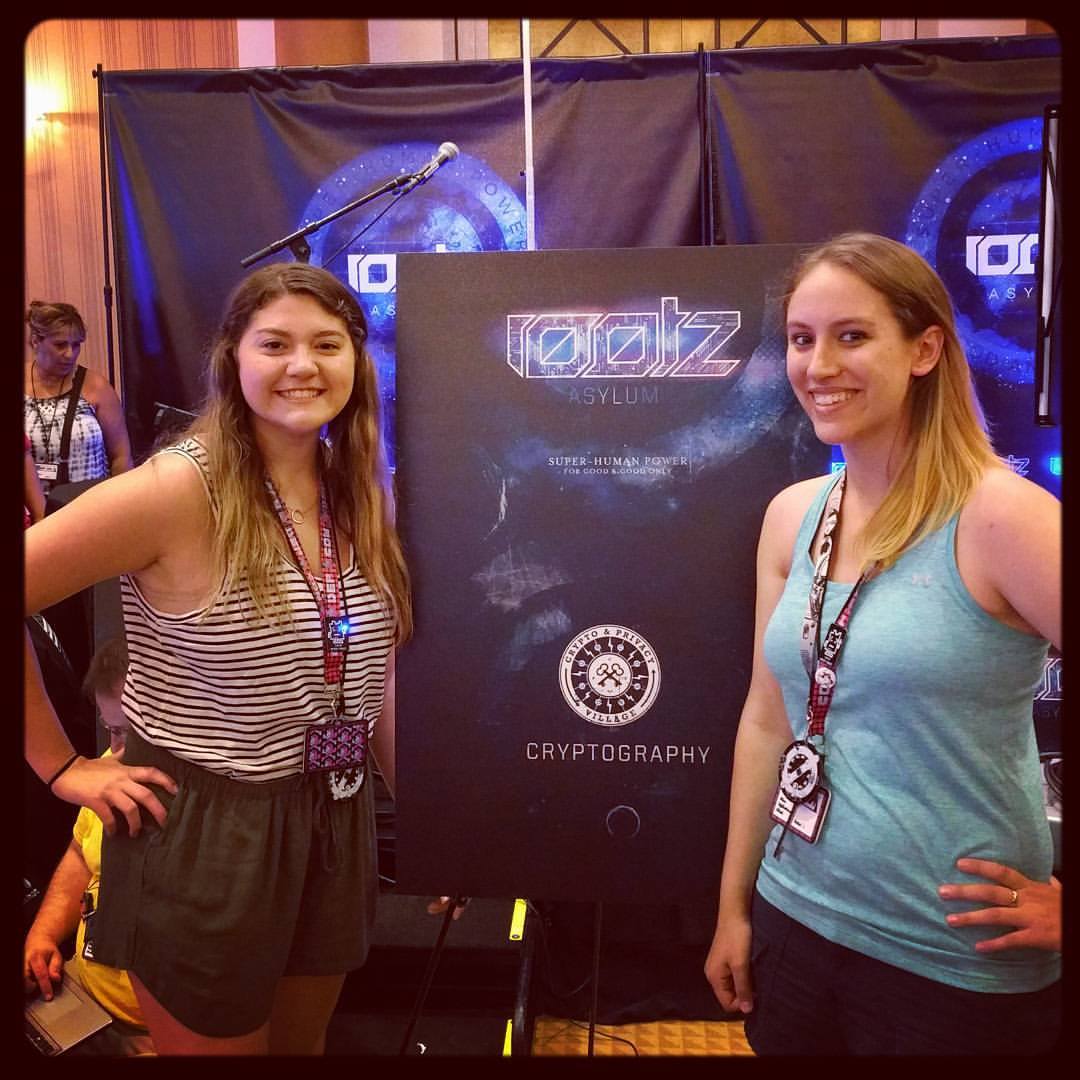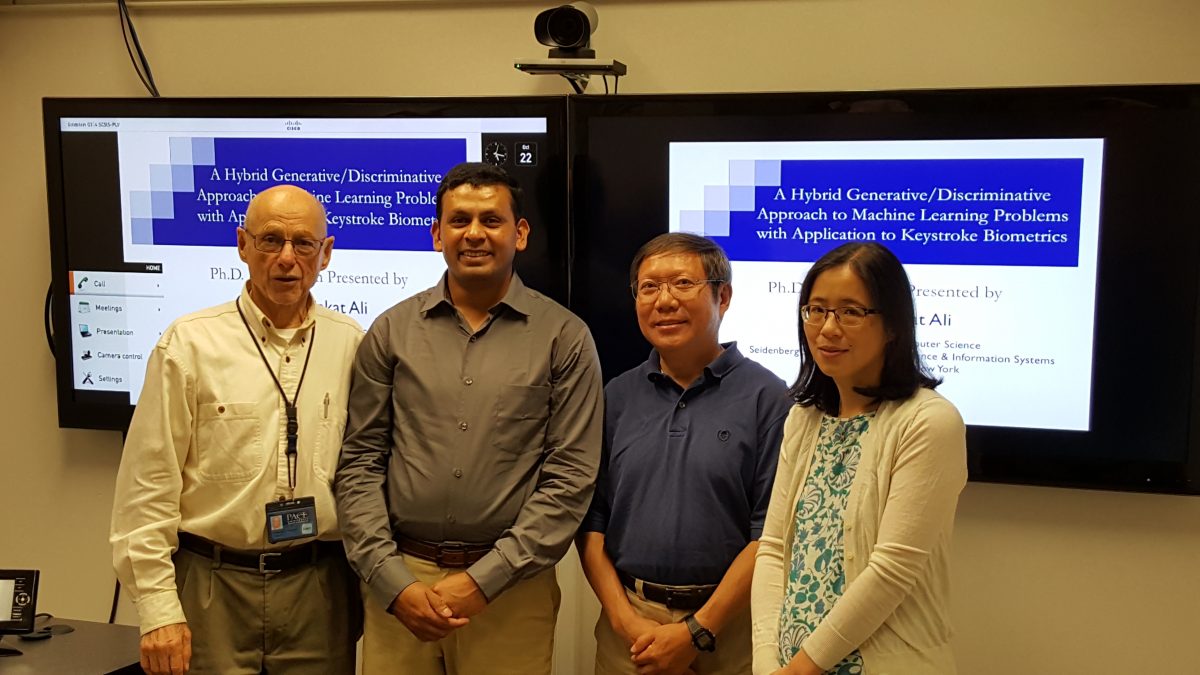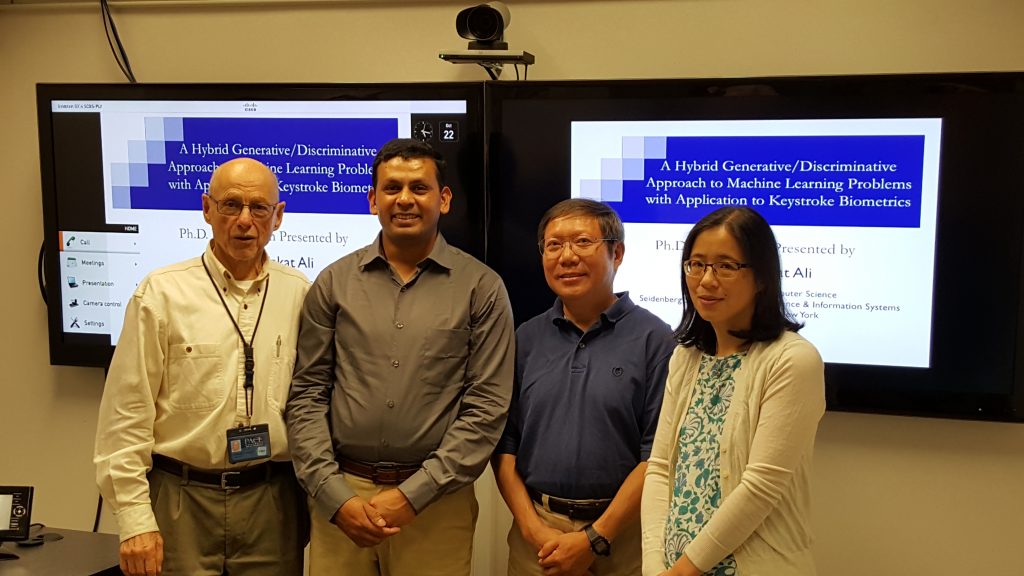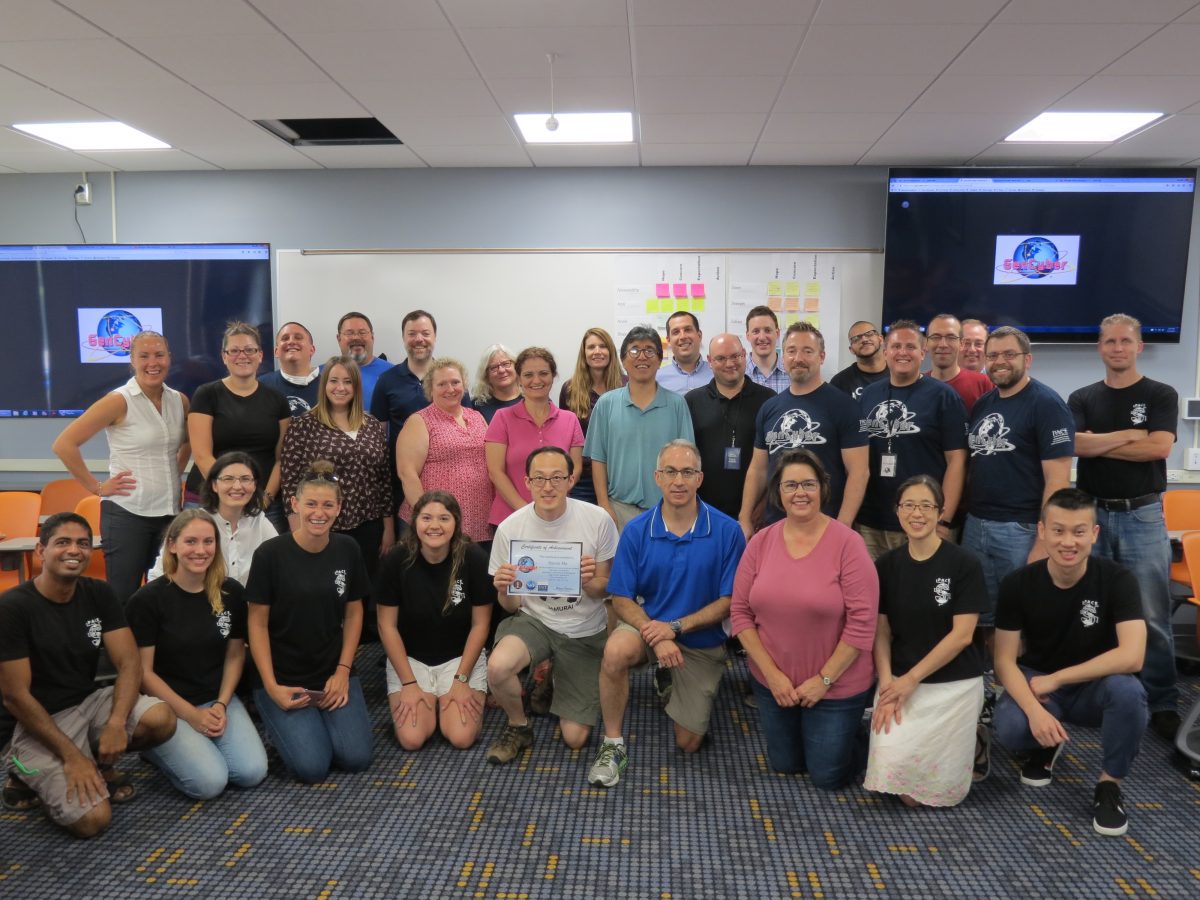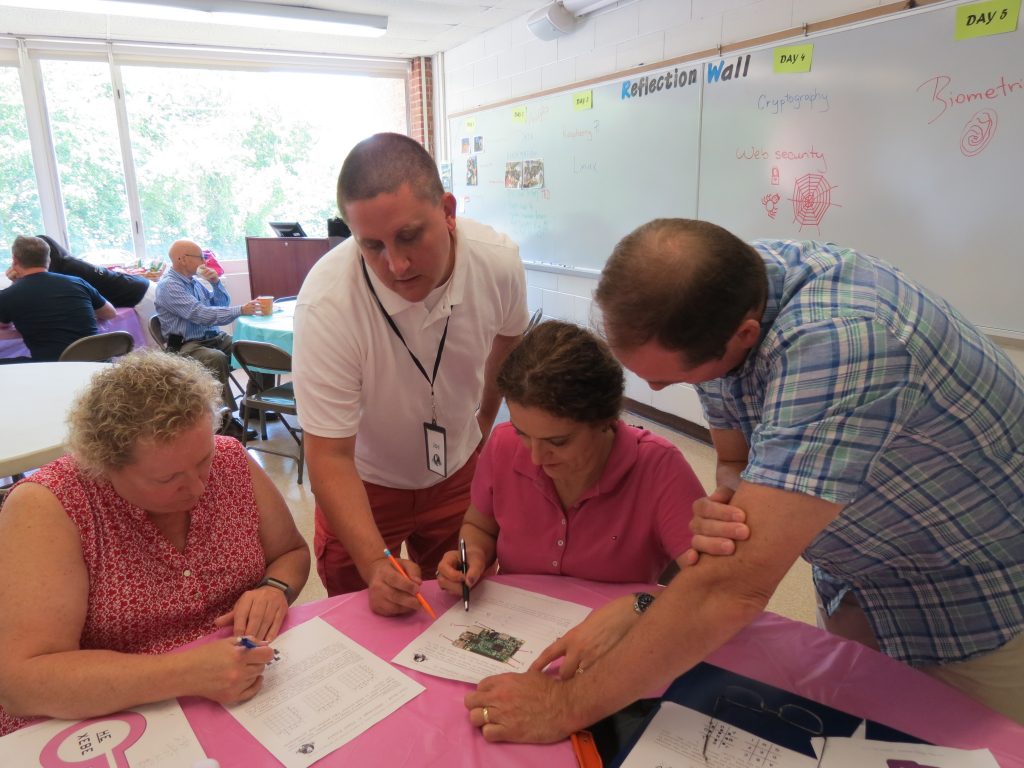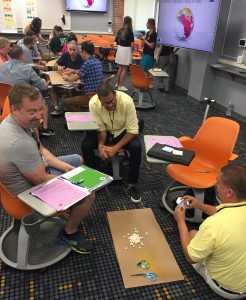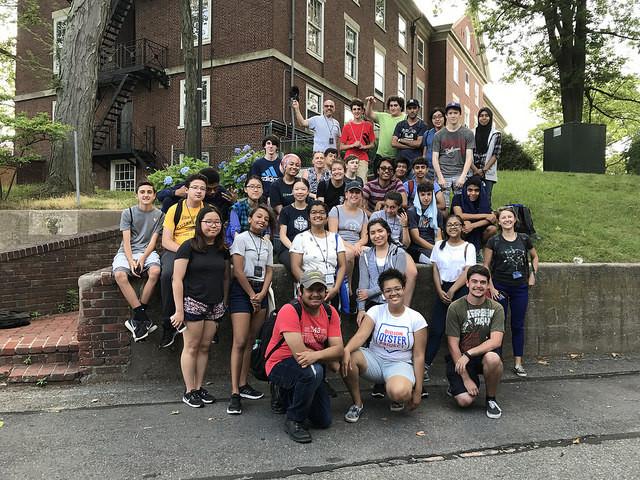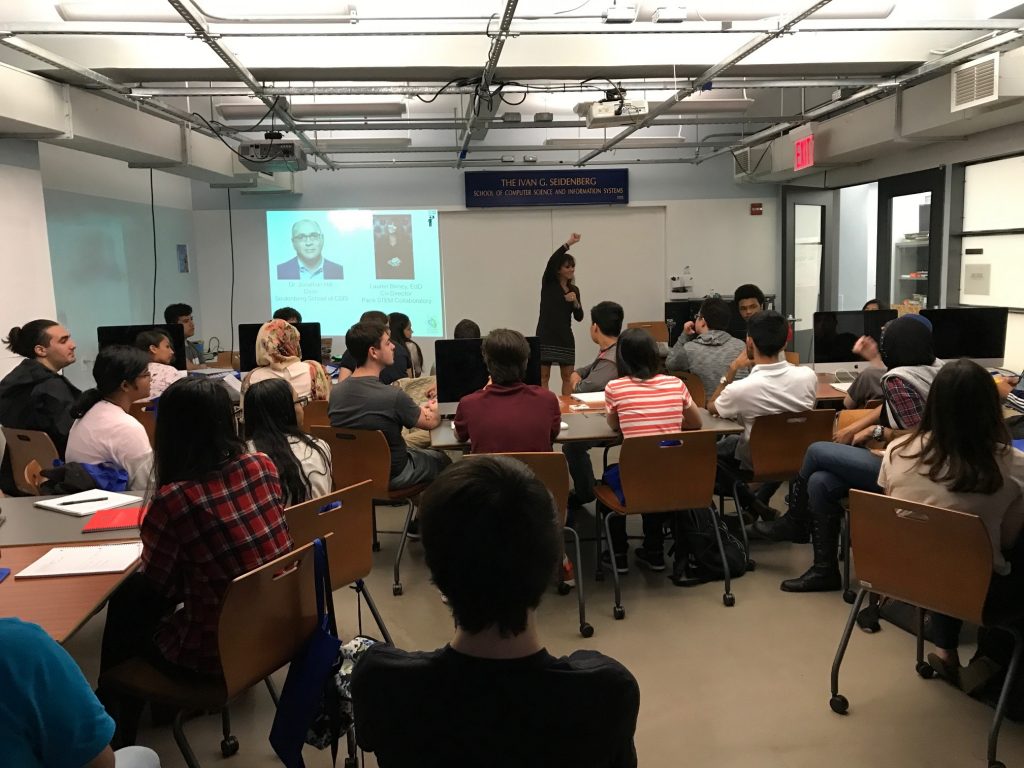by Kait Bestenheider
On Wednesday, July 26, eight Seidenberg students from both NYC and Pleasantville campuses traveled across the country to attend one of the world’s largest hacking conventions, DEF CON, in Las Vegas. The conference offered talks, workshops, and industry connections, the quality of which cannot be matched elsewhere.
The group pictured below consisted of Adriana Aluia (BS Information Technology), Kaitlyn Bestenheider (MS Information Systems), Brandon DeLuca (BS Computer Science), Siobhan Kiernan (MS Computer Science), Andrew Ku (BS Information Systems), Benjamin Longobardi (BS Computer Science), Connor McGee (BS Computer Science), and Elizabeth Molloy (BS Information Systems and Cybersecurity).

Each student had their own unique experiences. They were able to attend all of the following workshops in the four short days of the conference.
- Applied Physical Attacks on Embedded Systems, Introductory Version
- Subverting Privacy Exploitation Using HTTP
- Building Application Security Automation with Python
- Windows POST Exploitation
- Penetration Testing in a Hostile Environment
- UAC Bypasses in Win7/8/10
“DEF CON was really cool. The speakers, workshops, and talks we’re all super diverse,” says Andrew Ku, “I picked up things that I didn’t know I was going to pick up until I saw there was a village for it. But by far, interacting with other human beings was the highlight of my Def Con experience.”
Connor Magee agreed, stating, “Being able to pick the minds of some of the smartest people within the information security industry was a phenomenal experience!”
Two students were even able to present content that they had created at R00tz Asylum. R00tz is one of many villages featured at DEF CON, but unlike most other villages (see Crypto and Privacy Village, Lock Picking Village, Packet Hacking Village’s Wall of Sheep, and more), R00tz is dedicated to security aficionados age 6-16.
Kaitlyn Bestenheider and Elizabeth Molloy were asked by some of the organizers at Cryptography and Privacy Village if the material they created for Pace University’s GenCyber program could be used for their R00tz program. The girls were able to attend the “kids only” village to help present their material. Both girls cited it as the highlight of their DEF CON experience. Kaitlyn wrote about her experiences leading the workshop on her personal blog, Kait Tech – check it out!
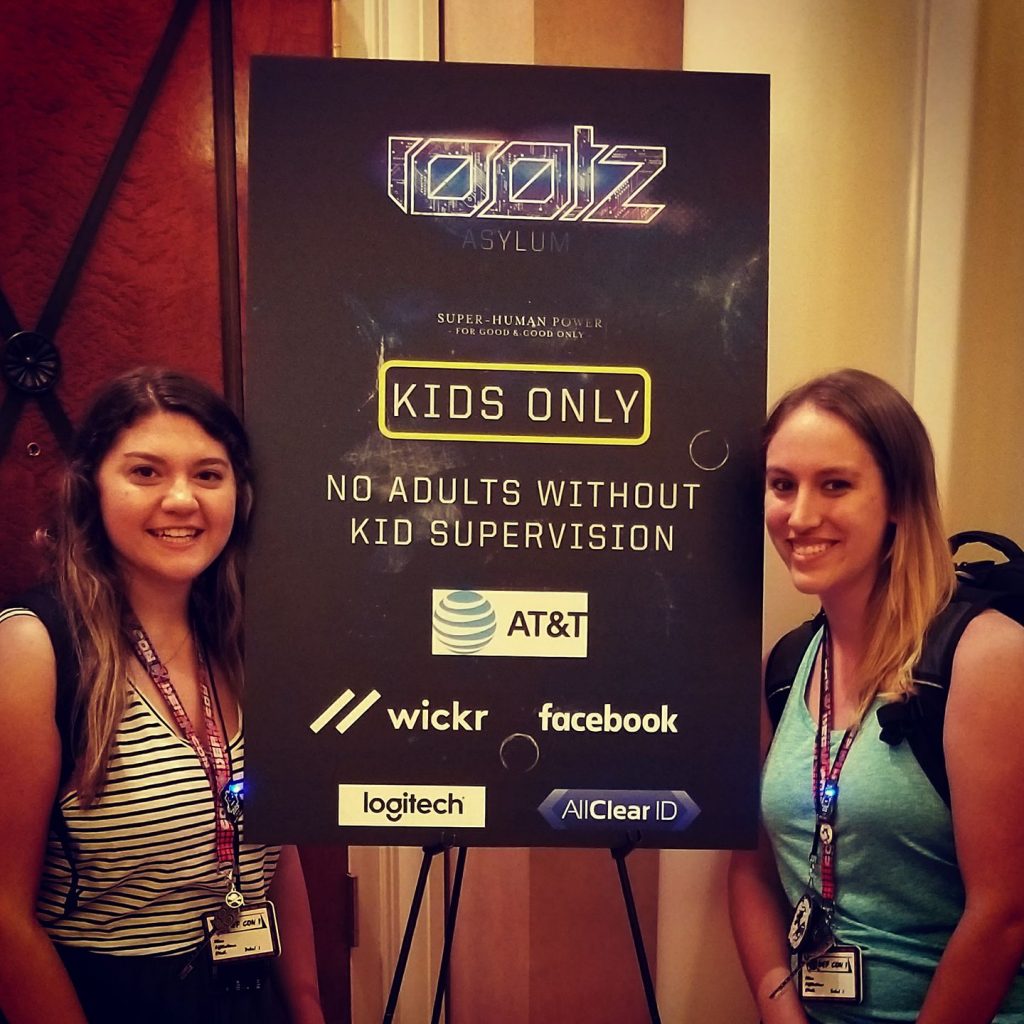
Brandon DeLuca summed up the overall experience well. “DEF CON, above all learning activities and interaction, was a motivating experience; you really learn a lot about unexplored topics in the area of study. Understanding just how skilled others are in their respective fields makes you want to push yourself even harder to learn and become the best.”
“It was kind of cool seeing the culture behind the stuff I’ve been learning about in school,” said Ben Longbardi.
To learn more about each of the students’ experiences, join us at the (WIT@Pace) meeting on Tuesday, October 17th, 2017, for their “DEFCON Redux” event. Register for the WIT event here!
Thanks to Kaitlyn Bestenheider for covering DEF CON! We will have another student blog from Kait about her experience in the R00tz workshop soon!


